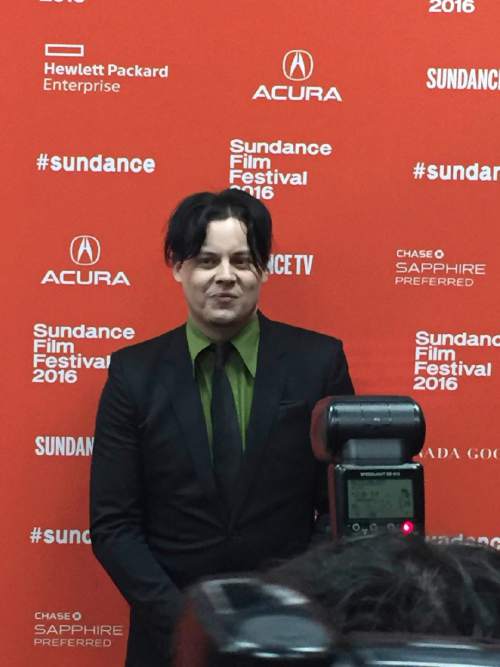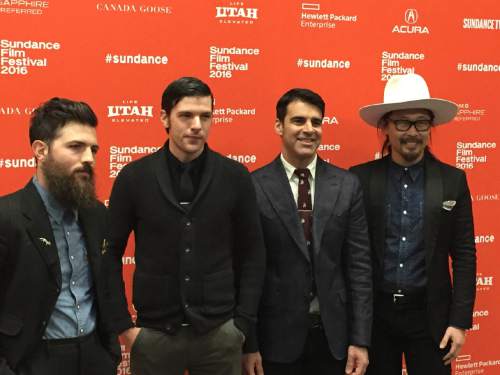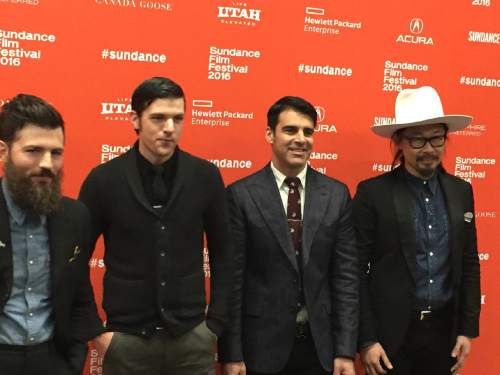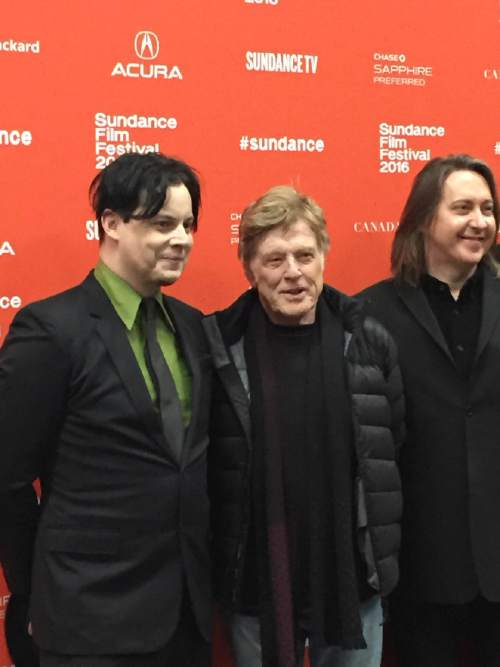This is an archived article that was published on sltrib.com in 2016, and information in the article may be outdated. It is provided only for personal research purposes and may not be reprinted.
Jack White approaches recording music with reverence, comparing the recording studio to a church, strapping a guitar around his chest as donning his Sunday best.
If the studio is a church, "The White Stripes" frontman's project "American Epic" seeks to find out how the music industry's original sermons were recorded.
Sundance Film Festival-goers got a 45-minute preview of the upcoming four-part PBS/BBC documentary series Thursday night at a packed Eccles Theatre in Park City. The series is directed by Bernard MacMahon and produced by White, Robert Redford and T Bone Burnett.
"American Epic" focuses on long-lost recording equipment and methods used beginning in 1926 to capture the birth of American music — from blues to folk all over the nation.
"It democratized music and culture in America," MacMahon said.
The peek at Eccles and performance afterward including Taj Mahal gave an abbreviated look at the blues music of Mississippi John Hurt, the Voyager Golden Record that was launched into space in 1977, and the pulley system recording equipment that jumpstarted the music industry and set the standard for three-minute songs.
The first three parts of the upcoming documentary focus on early American music history while the fourth and final part features a rebuild of the original recording machine to capture the sounds of 20 modern artists — including White, The Alabama Shakes, hip hop artist Nas, The Avett Brothers, Elton John, Beck and more.
Scott Avett of "The Avett Brothers" said the machine reduces music to its most basic form, three minutes of stripped-down sound that bears all the triumphs and flaws of a one-take recording.
"You can't really hide behind anything," Avett said. "It's like what is in the song, what is in the musician. For us, we're kind of gauging ourselves on that whenever we can and that was an opportunity to exemplify that."
White said in a modern era of multitracking and recording on laptops, watching artists learn the finesse required to stand just close enough to the primitive microphone to capture a sound just right was reminiscent of a time when music was at its best.
"I think everybody was of course excited to record in this unique way that obviously no one has been able to do for 80, 90 years and it was great to be able to help their process along," he said.
Twitter: @BrennanJSmith









